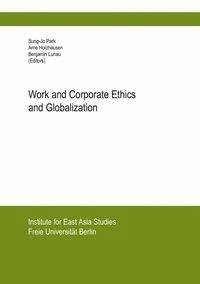
A Strategic and Tactical Approach to Global Business Ethics
Versandkostenfrei!
Versandfertig in 1-2 Wochen
23,99 €
inkl. MwSt.

PAYBACK Punkte
12 °P sammeln!
In the modern era of globalization Multi-National Corporations (MNCs) have expanded their operational reach to the far corners of the world to a degree and scope never before encountered. Their activities across the global supply chain, both vertically and horizontally, touch numerous societies. Their influential impact is larger than ever before and is growing. One of the key issues facing MNC senior executives at the home office, and trickling down to embedded managers abroad, is moral decision making via the construction of a code of ethics that can universally be applied.Ethics is a compen...
In the modern era of globalization Multi-National Corporations (MNCs) have expanded their operational reach to the far corners of the world to a degree and scope never before encountered. Their activities across the global supply chain, both vertically and horizontally, touch numerous societies. Their influential impact is larger than ever before and is growing. One of the key issues facing MNC senior executives at the home office, and trickling down to embedded managers abroad, is moral decision making via the construction of a code of ethics that can universally be applied.
Ethics is a compendium of moral interpretations steeped in a multitude of religious and philosophical applications. It is subject to various cultural intrusions as well as independent personal interpretation. The study of international business and all related managerial disciplines usually includes ethical content. The majority of global management textbooks offer a chapter on ethics, and its often misaligned cousin, social responsibility. They tend to cover the subject matter by stating the problem and then reciting laws enacted to combat social injustice as well as including philosophical theories intended to provide generic direction. This iceberg approach, a topical view of the issues, leaves the average MBA student along with executive cadre longing for more specific guidelines.
This book is intended to provide templates for ethical decision making within a globalized commercial arena. It presents more detailed direction on how to arrive at universal standards with the construction of patterns of application. It aims to provide more exacting models of resolution for the building of corporate codes of conduct while offering guidance for foreign managers in everyday ethical matters.
Ethics is a compendium of moral interpretations steeped in a multitude of religious and philosophical applications. It is subject to various cultural intrusions as well as independent personal interpretation. The study of international business and all related managerial disciplines usually includes ethical content. The majority of global management textbooks offer a chapter on ethics, and its often misaligned cousin, social responsibility. They tend to cover the subject matter by stating the problem and then reciting laws enacted to combat social injustice as well as including philosophical theories intended to provide generic direction. This iceberg approach, a topical view of the issues, leaves the average MBA student along with executive cadre longing for more specific guidelines.
This book is intended to provide templates for ethical decision making within a globalized commercial arena. It presents more detailed direction on how to arrive at universal standards with the construction of patterns of application. It aims to provide more exacting models of resolution for the building of corporate codes of conduct while offering guidance for foreign managers in everyday ethical matters.














